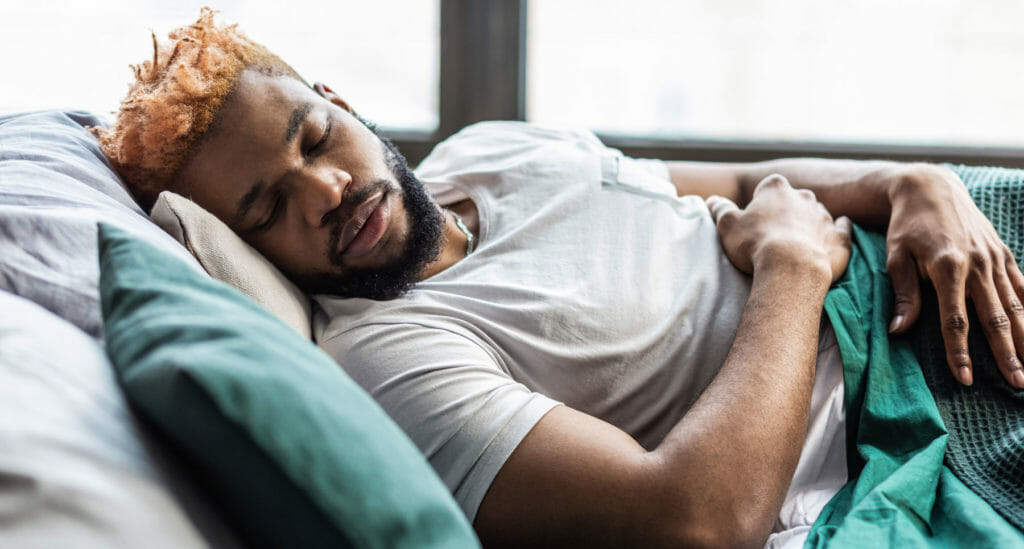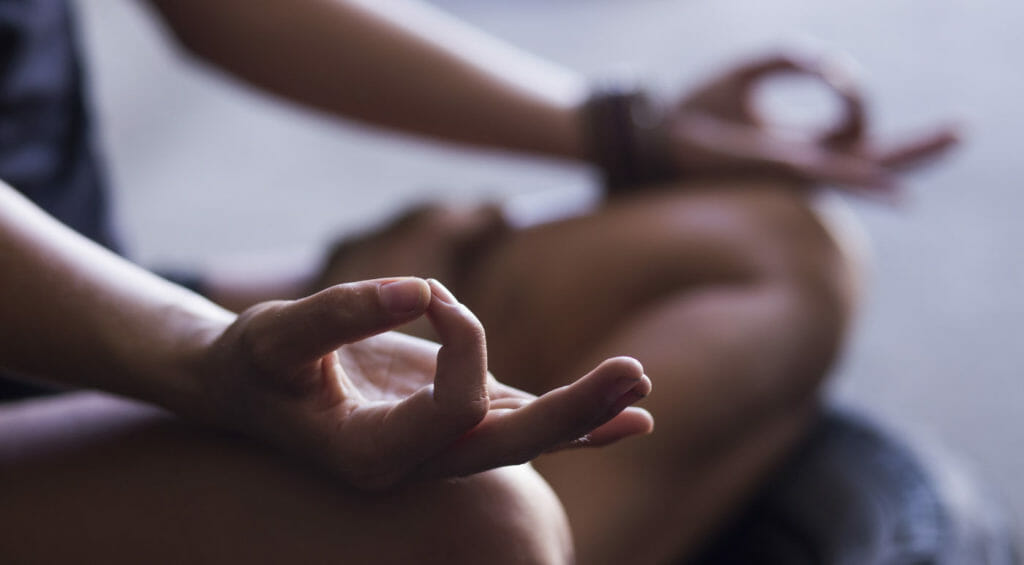
Is your sleep suffering? Before worrying about bigger problems, try the low-hanging fruit: small things you can change today to see results in your sleep quality. To achieve natural, restorative sleep, you needs a calm mind, a relaxed body, and a comfortable and supportive environment. Try these sleeping tips for better nights and more restful, productive days.
Tips to Prepare Your Mind for Better Sleep
Your sleep clock is influenced by the state of your mind. If you’re busy thinking or worrying at night, the brain starts racing and is unable to focus on sleeping. During the day, your body is in “fight-or-flight” mode, also known as the sympathetic nervous system mode. At night, the body needs to be in “rest” mode, also called parasympathetic nervous system mode, to allow night hormones such as melatonin to help initiate sleep. It might sound complicated, but calming your mind is easier than you think.
Create a Regular Sleep Schedule
Get serious about nighttime relaxation. A consistent sleep and wakeup schedule synchronizes your biological clock and rhythms, leading to better sleep. Plan to go to bed at the same time every day, and wake up at the same time as well — even on weekends. To create this consistency, it helps to have a routine for winding down before you go to bed.
Set an Alarm for Going to Bed
Let’s face it, there’s always something else that needs to be done in the evening. Setting an alarm for going to bed is an effective way to help you get used to a routine and remember to prioritize your consistent bedtime.
Get Sunlight During the Day
Exposure to sunlight during the day boosts serotonin, which helps to regulate mood and produce the sleep hormone melatonin. Even in winter, the brightness outside is ten times brighter than indoor light.
Going for a walk in the sun is always beneficial for your health. On the contrary, exposure to light within an hour or two of bedtime interferes with your melatonin production.
Use Blue Light Filters
Computer, tablet, cell phone, and television screens emit short-wavelength blue light that suppress melatonin and blocks the initiation of the sleep cycle.

Most cell phones have an option to turn on a blue-light filter. Mine turns on automatically by 8:30 PM, so I don’t even have to worry about it. On your computer, you can download f.lux, a free desktop application that removes blue light from your screen. You can also use blue light-blocking glasses.
Turn Off Electronics Two Hours Before Bedtime
Blue-light filters can help, but seeing the flickering light of the screen and taking in information still keeps your brain alert. Instead, read a book or engage in easy conversation with someone positive in your life.
Avoid Drugs and Regulate Your Stimulant Intake
Skip the Sleeping Pills
Many people who can’t sleep use sleeping pills, but research shows that sleeping pills are not the answer to insomnia. Long-term use of sleeping pills can lead to harmful physical and psychological health consequences, including death.
Quit Smoking
Cigarettes contain nicotine, a stimulant which makes smokers take longer to fall asleep, wake up more frequently, and have less deep sleep. If you have tried to quit smoking in the past, keep trying. It’s common for smokers to try to quit multiple times before succeeding.
Consider Your Caffeine Intake
Caffeine negatively affects both the quality and duration of sleep. Effects last until all consumed caffeine is metabolized out the body, which can take five to eight hours, depending on your age, genetics, and health conditions.
Don’t Drink Alcohol Close to Bedtime
Alcohol initially sedates you to sleep, but its metabolites stimulate you and disrupt your REM sleep, which is important for mental focus, concentration, learning, and memory. Enjoy your wine earlier in the evening, or take a break until you bring your sleep into a good rhythm.
Meditate to Calm Your Brain
Studies have shown that regular meditators spend more time in deep sleep with enhanced REM sleep. Meditation during the day acts as practice for your brain to become efficient at regulating stress and anxiety and optimizing sleep hormones.

Journal to Alleviate Stressful Thoughts
When we don’t let our stress out, it builds up, and there’s no other way for stress to get out. Write out ideas, frustrations, and aspirations in a journal, so that these thoughts don’t bother you at night when you are trying to sleep.
Nap Wisely
Napping during the day uses your sleep pressure, making it harder to sleep when you want to. If you’re going to nap, make it short (15-20 minutes) and try to finish before 2 PM.
Try Deep Breathing Exercises
If you feel anxious or stressed out before bed, try some deep breathing. It has been found to break the cycle of spinning thoughts, therefore reducing your anxiety and stress and promoting sleep.
Tips to Prepare Your Body for a Better Night’s Sleep:
Avoid Spicy Foods and Heavy Meals Before Bed
Spicy foods make your body warm and heavy meals keep your digestion working hard instead of resting, which can result in waking up feeling tired. You can promote rest by ensuring that you maintain 12 hours between dinner and breakfast.
Take a Warm Bath
A warm bath dilates the blood vessels in your skin, so when you get out of the tub, you cool down faster, which can help you fall asleep. A warm bath also relaxes muscle tension and is a great way to prepare for sleep.

Exercise Daily
30 minutes of exercise is recommended daily for better health and sleep. Exercise relaxes your body while increasing adenosine. Adenosine is a chemical in your brain that signals the body that you are tired and ready to sleep.
Exercising also produces temporary inflammation and cortisol, both of which can keep you from sleeping. Therefore, if you exercise before bed, keep it light and relaxing, not intense and challenging to your body.
Tips to Prepare Your Bedroom for Better Sleep:
The optimal sleep environment is cool, quiet, and dark. Make sure your bedroom hits the triple crown with these tips:
- Use your bedroom only for the three S’s: sex, sickness, and sleep
- Use thick blinds or curtains or wear an eye mask, because right street lamps can negatively affect your sleep.
- Avoid watching TV, using your phone, or eating in your bedroom.
- Ensure your bedroom is at a comfortable temperature for sleeping. It should be slightly cool.
- Wear earplugs if noise is a problem.
- Make sure that your mattress is comfortable and that you have a pillow you like, as well as adequate bedding for the time of the year.
- Keep your bedroom minimalist. Clean, empty space is relaxing for your brain. Keep it simple and tidy.
- Reduce electromagnetic frequencies, as they cause stress to your body and negatively affect your sleep cycle. Obtain a battery-powered alarm clock.
Assess Your Health and Rule Out Deeper Sleep Problems
Most of my clients come to me after they have tried several solutions. If you have prepared your body, mind, and environment but are still unable to sleep, it’s time to investigate further. The earlier you deal with your sleep problems, the sooner you can go back to getting full nights of deep rest and waking up with energy that lasts all day.
Additional Resources on Common Sleep Questions
How Many Hours of Sleep Should You Get?
How Much REM Sleep Do You Need?
Hypnosis for the Struggling Sleeper